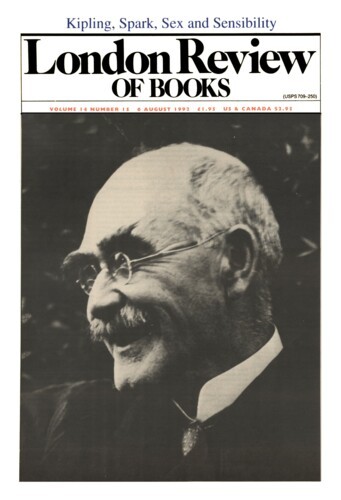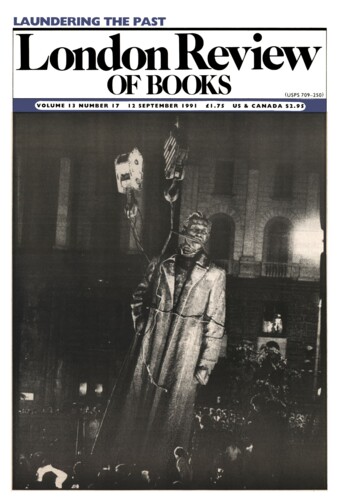Wordsworth and the Well-Hidden Corpse
Marilyn Butler, 6 August 1992
‘The best-known publication date in English literature,’ says Michael Mason of 1798. But the terse, intelligent Introduction to his new edition of the Lyrical Ballads seems out to disperse the sense of unique significance sticking to the year. Mason points out that the original version of 1798, which was anonymous, caught on less well than the second (1800), twice as long, and firmly attributed to Wordsworth alone. The two authors worked on four editions, appearing over seven years, further proof that there was no ‘historical moment but a sequence of moments’. Mason passes over the innovative 1798 and 1800 and chooses as his text 1805. A revolution, even a sense of historical occasion, is not what he is after.





